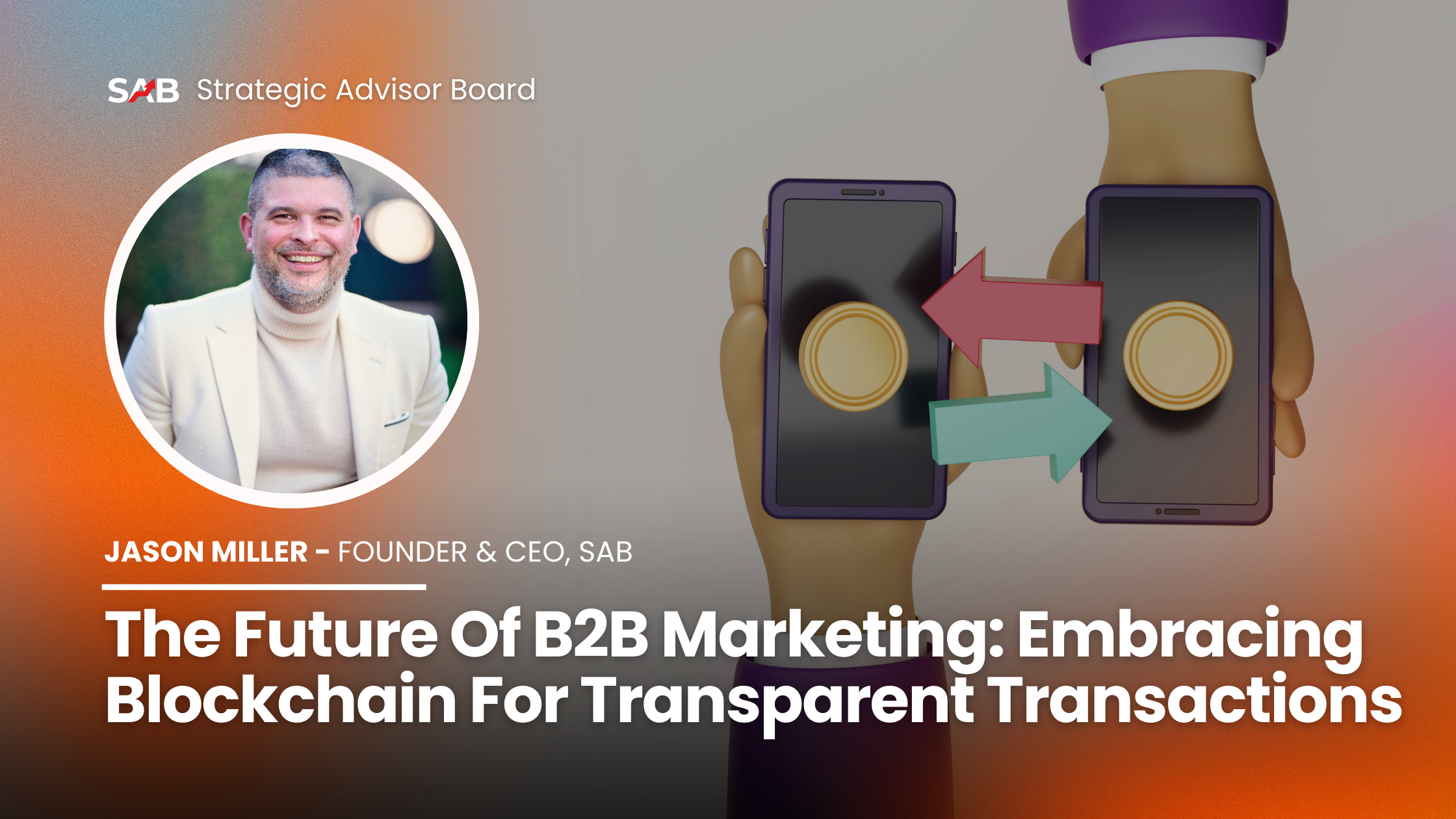
In the ever-evolving landscape of B2B marketing, businesses are constantly seeking innovative solutions to gain a competitive edge. One such groundbreaking technology that is set to revolutionize the industry is blockchain. Originally known for its association with cryptocurrencies, blockchain's potential extends far beyond digital currencies. Its ability to create transparent, secure, and tamper-proof transactions is transforming the way businesses interact, transact, and build trust. This article explores the future of B2B marketing through the lens of blockchain technology, highlighting its benefits, applications, and the transformative impact it holds for transparent transactions.
At its core, blockchain is a decentralized ledger that records transactions across multiple computers. Each transaction is added to a block, which is then linked to the previous block, forming a chain. This structure ensures that once data is recorded, it cannot be altered or deleted, providing an unprecedented level of security and transparency. For B2B marketers, this means creating an environment where transactions are not only secure but also easily auditable and trustworthy.
One of the primary advantages of blockchain technology is its ability to enhance transparency in transactions. In the B2B sector, where large-scale transactions and complex supply chains are the norm, transparency is crucial. Blockchain enables all parties involved in a transaction to access the same data, ensuring that everyone has a single source of truth. This eliminates the risks associated with data discrepancies, fraud, and unauthorized changes.
For instance, in a supply chain scenario, blockchain can provide real-time visibility into the movement of goods from the manufacturer to the end customer. Every step of the process is recorded on the blockchain, making it easy to track the origin, movement, and status of products. This level of transparency not only builds trust between business partners but also enhances accountability and compliance with industry regulations.
Blockchain technology streamlines various processes involved in B2B transactions, leading to improved efficiency and cost savings. Traditional B2B transactions often involve multiple intermediaries, each adding their layer of bureaucracy and cost. Blockchain's decentralized nature eliminates the need for these intermediaries by enabling peer-to-peer transactions.
Smart contracts, a key feature of blockchain, automate and enforce the terms of agreements without the need for intermediaries. These self-executing contracts are coded to trigger actions when specific conditions are met. For example, a payment can be automatically released once the delivery of goods is confirmed. This not only speeds up the transaction process but also reduces the potential for human error and disputes.
Moreover, the reduction in paperwork and administrative tasks associated with blockchain transactions leads to significant cost savings. Businesses can redirect resources towards more strategic initiatives, ultimately driving growth and innovation.
In the digital age, data security and privacy are paramount concerns for businesses. Blockchain technology addresses these concerns by providing robust security features. The decentralized and encrypted nature of blockchain makes it highly resistant to hacking and data breaches. Each block in the chain contains a unique cryptographic hash, which is linked to the previous block, making it nearly impossible to alter any information without altering all subsequent blocks—a feat that requires enormous computational power and is thus impractical.
For B2B marketers, this means that sensitive information such as customer data, transaction details, and proprietary business information is secure from unauthorized access and tampering. Additionally, blockchain's transparency ensures that any attempted breaches or anomalies are quickly detected and addressed.
The adoption of blockchain technology is set to revolutionize B2B marketing strategies in several ways. Firstly, it enables the creation of more targeted and personalized marketing campaigns. With access to transparent and accurate data, marketers can gain deeper insights into customer preferences and behaviors, allowing them to tailor their strategies to meet specific needs.
Secondly, blockchain facilitates better collaboration and trust between business partners. Transparent transactions and smart contracts reduce the risks associated with traditional agreements, fostering stronger and more reliable partnerships. This can lead to more effective joint marketing efforts, co-branded initiatives, and collaborative product development.
Finally, blockchain's ability to verify the authenticity of products and services can be leveraged in marketing communications. Businesses can provide verifiable proof of origin, quality, and compliance, building trust and credibility with customers. This is particularly valuable in industries where counterfeiting and fraud are prevalent.
The future of B2B marketing lies in embracing blockchain for transparent transactions. Its ability to enhance transparency, improve efficiency, ensure data security, and revolutionize marketing strategies positions blockchain as a game-changer in the industry. By adopting blockchain technology, businesses can build trust, drive innovation, and stay ahead in the competitive B2B landscape. The journey towards a blockchain-enabled future starts now, and those who take the leap will reap the benefits of a more transparent and efficient business environment.
Are you interested in growing your business with little or no work on your part? Check out our 1-Day Power Intensive to see if it’s right for you!
This article was brought to you by: Jason Miller, AKA Jason "The Bull" Miller, Founder/CEO and Senior Global Managing Partner of the Strategic Advisor Board - What has your business done for YOU today?